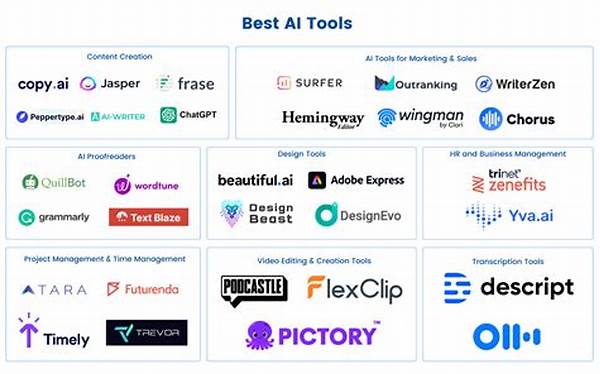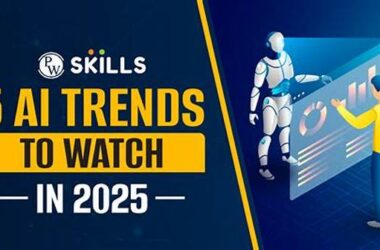Sure, creating content of this magnitude involves crafting several distinct pieces, which I’ll break down as per your request. Let’s dive in.
Read More : Remaker Ai Tools
Artificial Intelligence (AI) tools are revolutionizing the way businesses and individuals navigate our technologically advanced society. From automating mundane tasks to generating complex data analysis, AI tools are at the forefront of tech innovation. Diving into the world of top AI tools, it becomes clear why they are essential for anyone looking to streamline processes, boost productivity, or even just stay competitive in this ever-evolving digital landscape.
One of the most significant advantages of AI tools is their ability to automate repetitive tasks. Imagine a world where data entry, scheduling, and even customer service are handled by algorithms. This is not just a dream but a reality powered by top AI tools. These tools allow businesses to allocate human resources toward more creative and strategic initiatives. Studies have shown that automation can lead to a 40% increase in productivity, saving businesses both time and money. Tools like Zapier and IFTTT are prime examples of how AI-driven automation simplifies everyday tasks and integrates seamlessly with different applications.
Beyond automation, top AI tools offer advanced data analytics capabilities that were once only available to large corporations with extensive resources. Now, with accessible AI technologies, small to medium-sized enterprises can harness the power of big data. Companies like Tableau and Power BI leverage AI to provide insights that drive strategic decision-making, offering businesses the chance to innovate and adapt swiftly in response to market changes. This democratization of data analytics leads to smarter business decisions, optimizing operations, and ultimately improving the bottom line.
The Future of AI Tools in Business
As we move further into the era of digital transformation, the reliance on AI tools will only intensify. These tools are not just luxury additions to successful businesses but are becoming indispensable. Industries such as healthcare, finance, and marketing are already feeling the positive effects, with AI improving diagnostics, predictive analysis, and customer segmentation respectively. Embracing the top AI tools is not just about keeping up with competitors; it’s about paving the way towards a smarter, more efficient future.
—
The discussion surrounding top AI tools often sparks a mix of excitement and skepticism. While the capabilities they offer are promising, the implications they hold for the workforce and ethical considerations present valid concerns. As with any revolutionary technology, balance and regulation become the keys to responsible adoption.
In a world driven by data, AI stands as the gatekeeper of transformative insights. Yet, the question remains: are we ready to entrust machines with such power? Advocates argue that AI tools can handle large volumes of information far more effectively than humans possibly could. For example, AI systems are now analyzing medical data to anticipate and prevent diseases before they manifest, potentially saving countless lives.
The Double-Edged Sword
Nevertheless, concerns regarding job displacement cannot be overlooked. As AI tools become more sophisticated, roles traditionally filled by humans could become obsolete. However, history shows that technological advancement often creates new opportunities even as it renders others redundant. Therefore, the path towards integrating AI responsibly lies in education and retraining. Investing in skills that complement AI capabilities could unlock unprecedented opportunities for collaboration between human intuition and machine precision.
The ethical dimensions of AI deployment highlight the importance of transparency and accountability. AI tools often employ algorithms that may inadvertently reflect or exacerbate biases present in their training data. This represents a significant challenge for developers and policymakers alike, requiring ongoing effort to ensure ethical standards are met.
Embracing AI with Caution
The narrative surrounding AI must shift towards integrating these tools with caution and foresight. The balance between harnessing their potential and mitigating possible risks is delicate but necessary. Public discourse, like this one, plays a crucial role in shaping policies that govern the use of AI, influencing both the private sector and regulatory bodies.
In Conclusion
In summary, top AI tools are poised to be pivotal in driving innovation across industries. Encouraging exploration and dialogue about their capabilities and consequences is essential. Striking the right balance between embracing their potential and addressing the challenges they present will determine the trajectory of AI in our society. Engaging with these discussions, informed by both statistical analysis and human experience, empowers us to shape a future where AI augments rather than replaces, paving the way for technological harmony and societal progress.
—
Key Takeaways about Top AI Tools
—
The surge in AI tool adoption arises from a need to advance operational efficiency while maintaining a competitive edge. Primarily, businesses seek to streamline processes and cut costs without sacrificing quality or customer satisfaction. AI embodies an adaptable solution, automating low-value tasks and liberating human resources to focus on innovation, creativity, and customer interaction.
Furthermore, as consumer expectations evolve in an increasingly connected world, personalized experiences become paramount. AI tools empower businesses to anticipate customer needs, tailor their approaches, and deliver unique value propositions that resonate with their target audiences. The intention is clear: harness AI not merely as a tool for efficiency but as a strategic asset that fosters deeper customer engagement, driving growth and setting new industry benchmarks.
—
Exploring the Top AI Tools
The landscape of AI tools is vast and varied, featuring innovations that span across industries and applications. Understanding and leveraging these tools require not only technical acumen but also a comprehension of their broader implications in economic and societal contexts.
One cannot overlook the influence of AI on marketing strategies. AI tools are now essential for automating campaign management, analyzing consumer behavior, and predicting market trends. Incorporating AI means reaching audiences with a precision unattainable through conventional methods, ensuring content relevance and maximizing engagement.
AI in Daily Operations
Similarly, top AI tools are infiltrating daily operations, enhancing everything from supply chain management to product development. AI-driven analytics offer actionable insights, helping businesses respond dynamically to market fluctuations and consumer demands. In doing so, companies maintain agility and resilience, hallmarks of contemporary business practices.
The capabilities of AI also extend to customer service. Chatbots and virtual assistants, powered by sophisticated AI algorithms, provide round-the-clock support, significantly reducing response times and improving customer satisfaction rates. These AI interfaces not only handle inquiries efficiently but also collect data for continuous service improvement.
Societal Reflections on AI Integration
Striking a balance between technological advancement and societal impact is crucial as top AI tools become integral to our daily lives. Their application, however, must be tempered with ethical considerations and a commitment to equitable access. Initiatives to bridge the digital divide and ensure AI literacy across various demographics are vital steps towards achieving this goal.
As AI tools continue to evolve, the conversation must remain open and inclusive, fostering an environment where technology serves everyone effectively. The collaborative efforts of policymakers, the tech community, and society at large will shape a future where AI advances align with our collective values and aspirations.



